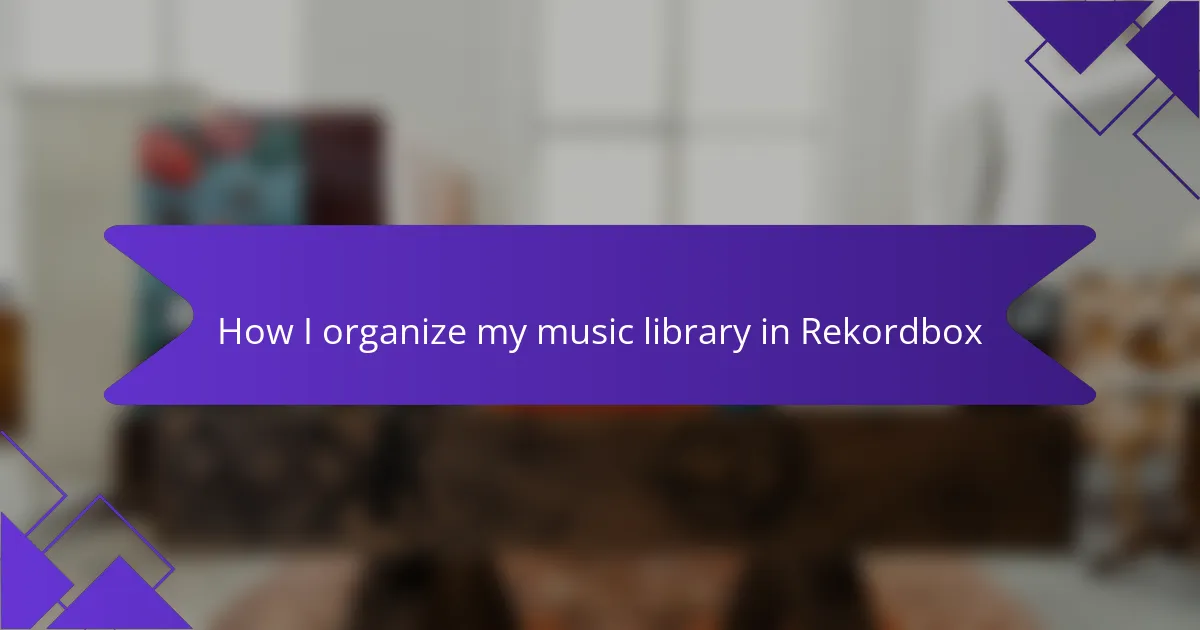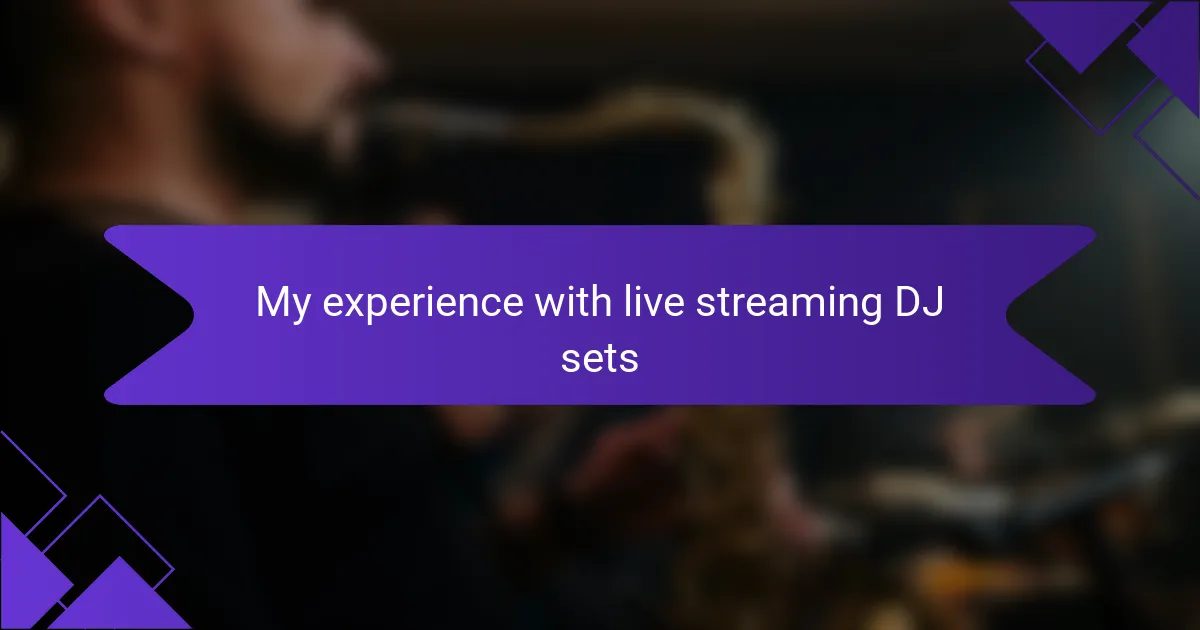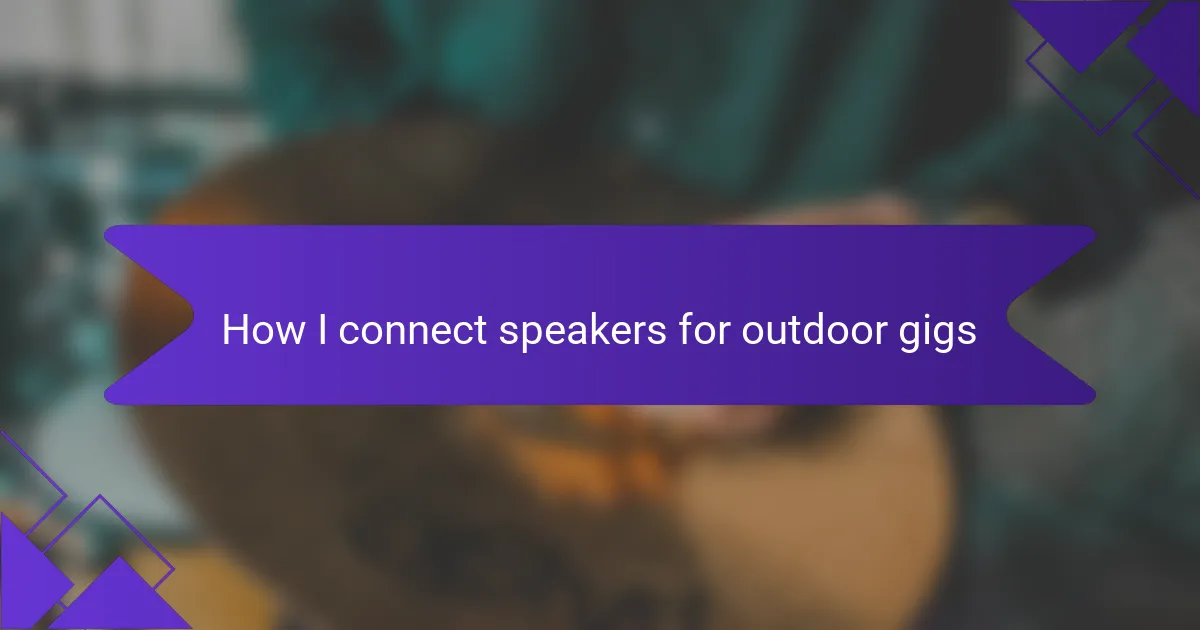Key takeaways
- Upgrading DJ gear should align with personal performance style and music vision for maximum impact.
- Quality equipment enhances sound fidelity, reliability, and user experience, leading to better performances and audience engagement.
- Testing and integrating new gear is crucial for a seamless transition during live events.
- Networking with other DJs can provide valuable insights and recommendations for making informed gear choices.
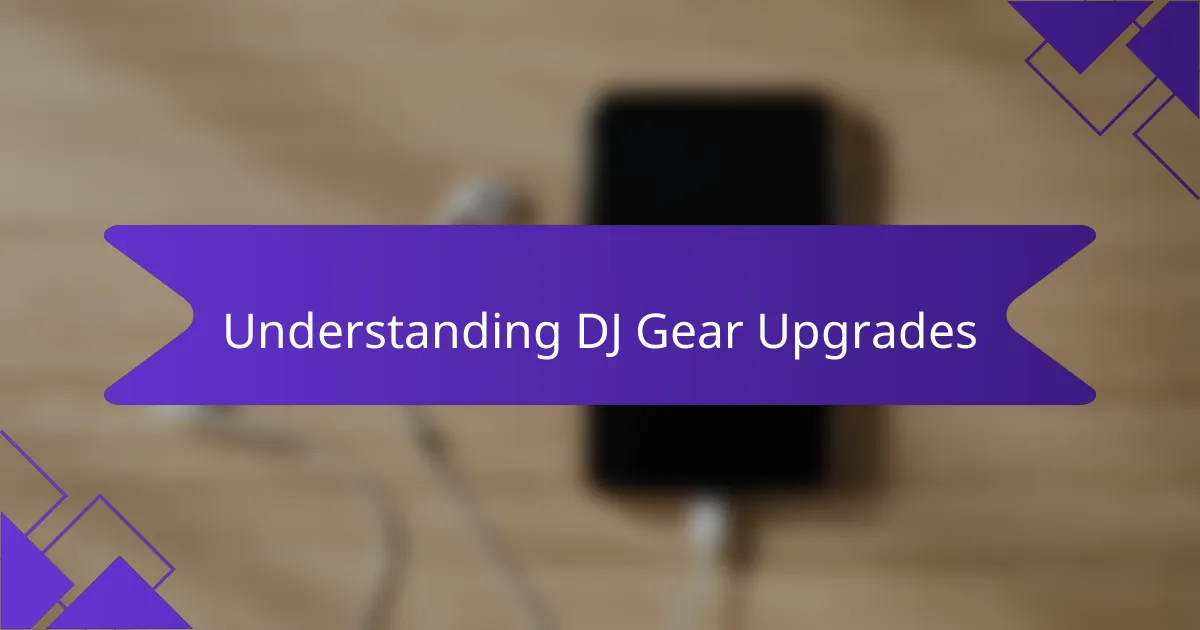
Understanding DJ Gear Upgrades
When it comes to upgrading DJ gear, understanding your needs is crucial. I remember my first serious upgrade; I felt a mix of excitement and anxiety, wondering if the new equipment would truly enhance my sets. The reality is that the right gear can transform your performance, but only if it aligns with your style.
I often ask myself, “What do I want to achieve with this upgrade?” This question helps me sift through the endless options available. For instance, investing in a high-quality mixer made a significant difference for me—it improved my ability to blend tracks seamlessly, elevating the energy on the dance floor.
It’s also essential to consider your budget and resale value. I once splurged on a set of speakers that I adored, but when I looked at their resale value later, I wished I had done more research. Knowing when to upgrade and when to hold off can save you money and ensure you invest wisely in gear that genuinely enhances your performance.
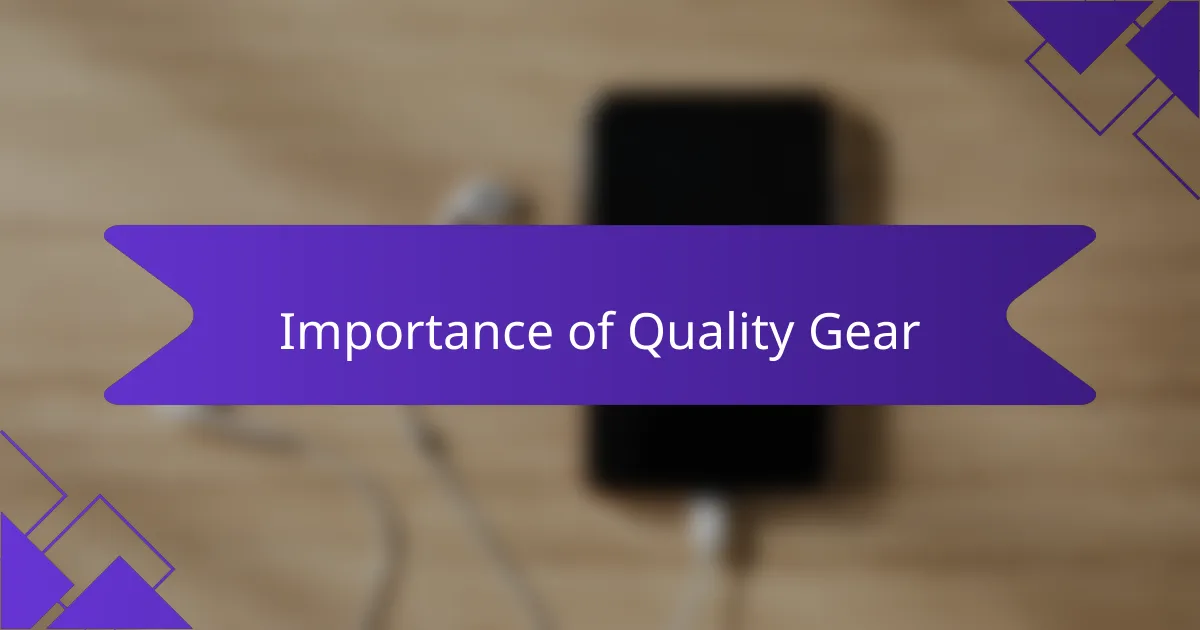
Importance of Quality Gear
When it comes to DJing, quality gear can make a world of difference. I’ve experienced firsthand how investing in the right equipment elevates my performances. The sound quality, reliability, and even the ease of use can turn a good set into an unforgettable experience for both the DJ and the audience.
I remember my early days with some budget-friendly equipment. While it got the job done, the constant technical issues were frustrating. Upgrading to professional-grade gear not only boosted my confidence but also my creativity. It allowed me to focus on my music rather than worrying about whether my gear would hold up during a gig.
Top-notch gear enhances sound fidelity and can capture the nuances of your mixes that cheaper alternatives often miss. In my experience, it’s not just about the music; it’s about the entire atmosphere you create for your audience. Investing in quality gear ultimately translates to better performances and happier crowds.
| Type of Gear | Budget Gear | Professional Gear |
|---|---|---|
| Sound Quality | Good, but lacks depth | Rich, full sound with clarity |
| Reliability | Often breaks down | Durable, built for the long haul |
| User Experience | Complicated, hard to use | Intuitive, enhances creativity |
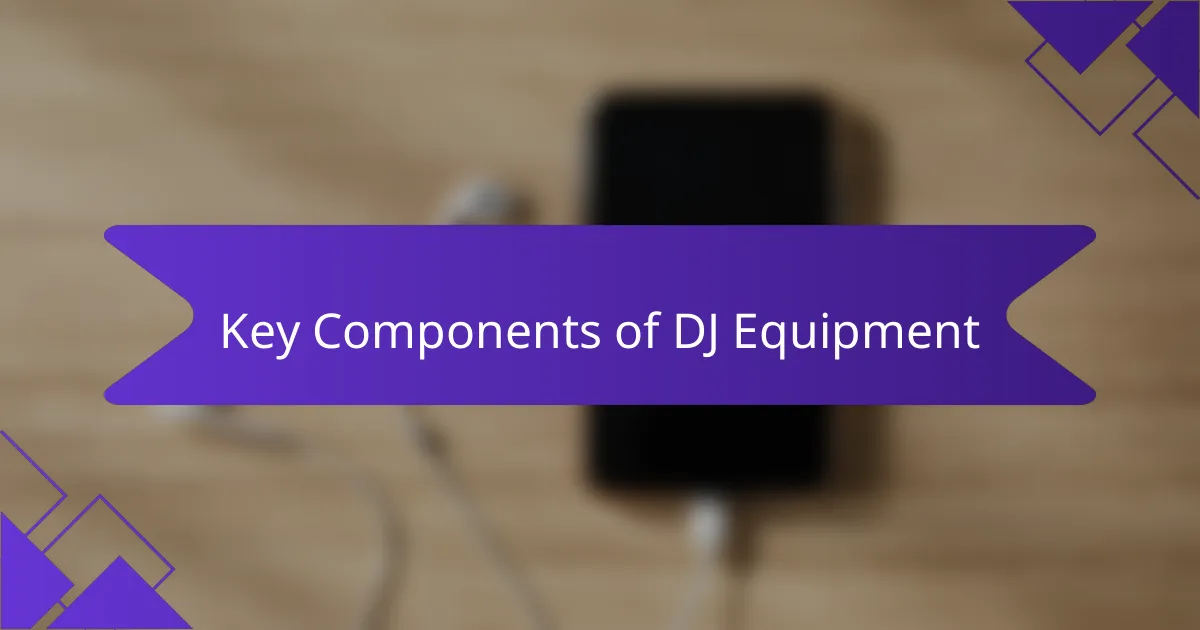
Key Components of DJ Equipment
When it comes to DJ equipment, the right components can significantly elevate your performance. Over the years, I’ve learned that investing in quality gear truly enhances the experience, both for me and my audience. Each piece serves a specific purpose, and understanding these components helps in making informed upgrade decisions.
Here are the key components of DJ equipment that I consider essential:
- Turntables or Digital Controllers: The foundation of any DJ setup, whether you prefer the classic vinyl experience or the convenience of digital control.
- Mixer: This acts as the control center, allowing you to blend and manipulate tracks seamlessly.
- Speakers: Good sound quality is critical. It’s about delivering an engaging experience that keeps the audience dancing.
- Headphones: A quality pair is essential for beat matching; I can’t stress enough how a good set helps in crafting smooth transitions.
- Laptop/Software: The hub of my setup, where I organize my tracks and execute my mixes. The software can make or break your workflow, so choosing one that fits your style is vital.
- Audio Interface: This connects your laptop to the mixer and speakers, ensuring top-notch sound clarity.
Having these components not only improves the technical side but also enhances the emotional connection with my audience, making every gig memorable.
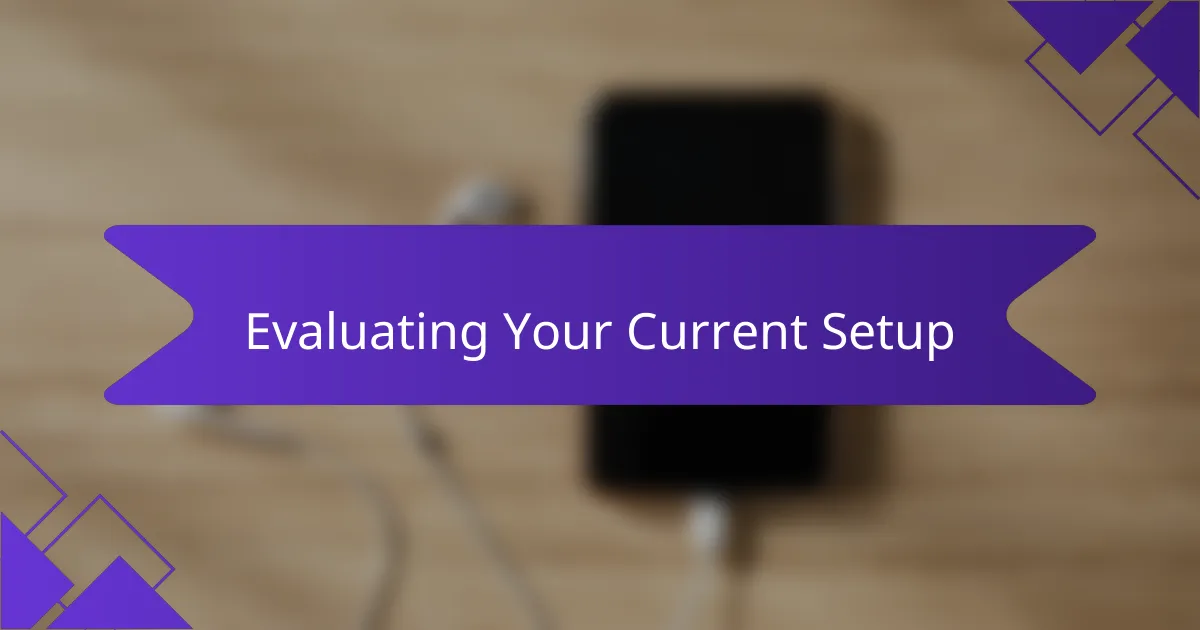
Evaluating Your Current Setup
When evaluating your current DJ setup, it’s essential to consider not just the gear you have, but how it serves your performance style. I remember when I first started; my setup seemed adequate, but as I delved deeper into my craft, I realized it lacked the versatility and quality I craved. Reflecting on my experience, I suggest making a list of what works well and what doesn’t—it can be revealing.
You also need to think about how your current equipment affects your brand. For instance, when I upgraded my speakers, the clarity and power truly transformed my gigs and boosted my confidence. This change helped me connect better with the crowd and created a more memorable experience.
Here’s a simple comparison table to help assess your DJ gear:
| Equipment | Current Performance |
|---|---|
| Speakers | Decent sound, lacks bass |
| Controller | Basic features, no MIDI mapping |
| Headphones | Comfortable, but not durable |
| Microphone | Clear sound, but limited range |
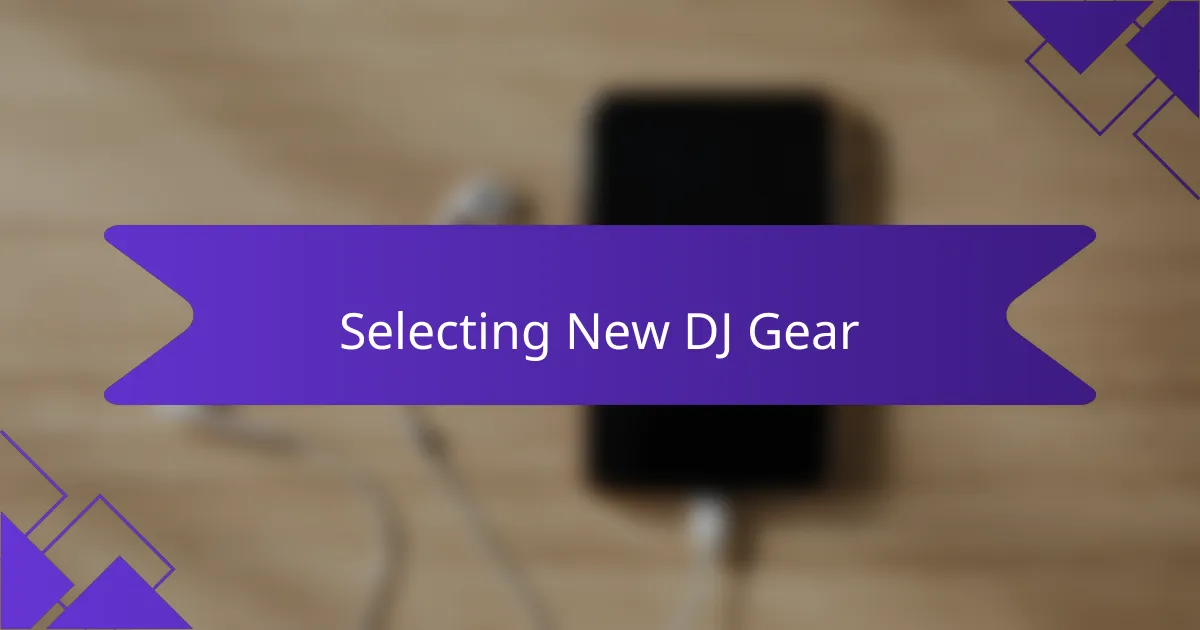
Selecting New DJ Gear
Selecting new DJ gear is often one of the most exciting yet daunting tasks for any DJ. I vividly remember the rush of anticipation when I first decided to upgrade my mixer. I found myself asking, “Is this truly going to elevate my sets?” This decision-making process is not just about selecting shiny new toys; it’s about aligning this gear with your musical vision and performance needs.
One thing I’ve learned over the years is that personal testing is invaluable. Whether it’s feeling the weight of a jog wheel or hearing the warmth of a new speaker, nothing beats a hands-on approach. I often visit local music stores or demo events to try out the gear before making any purchases. This way, I can gauge if a piece truly resonates with my style and enhances my performance.
Budget also weighs heavily in these decisions. I remember a time when I was torn between two options: a reasonably priced controller and a high-end alternative. What I did was list the features that mattered most to me and assessed potential longevity. Sometimes, a higher initial investment pays off in the long run, both in sound quality and durability. Would you rather spend money multiple times on low-quality equipment or invest once in something that propels your sets to the next level? It’s a question worth pondering.
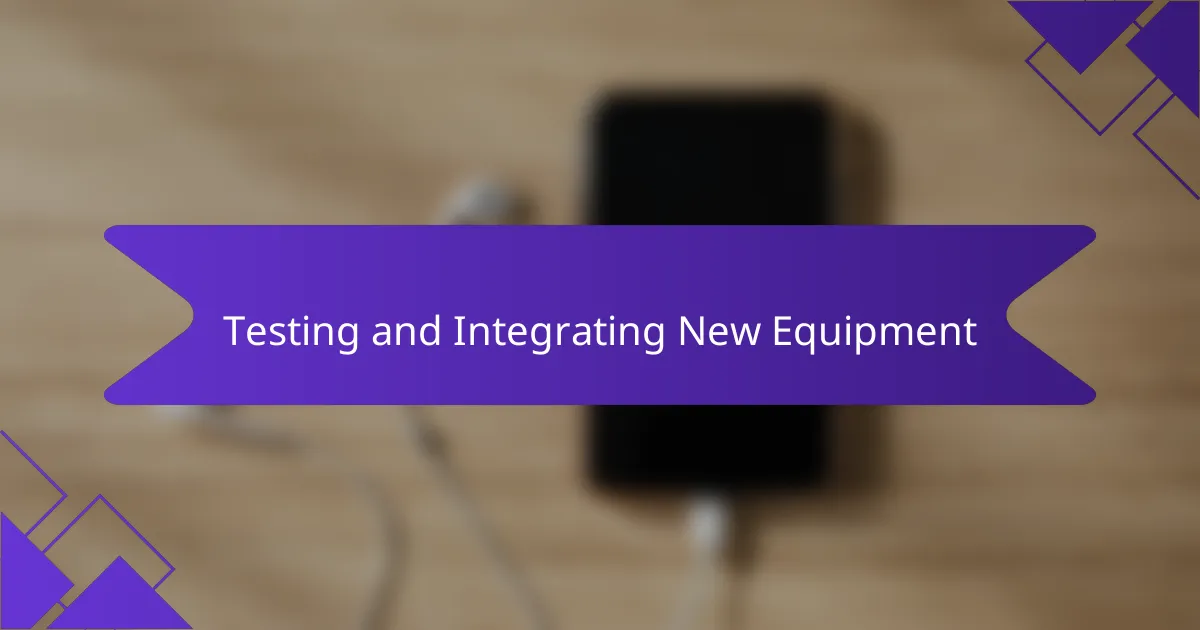
Testing and Integrating New Equipment
When I test new DJ equipment, I always set aside time to really get to know it before taking it to a live gig. There’s something exciting about unboxing new gear and imagining how it will enhance my sets. I remember when I first tried out a new mixer; the moment I adjusted the EQ and heard how clear the sound was, it was like a lightbulb moment. Integration is just as important—I make sure to practice transitioning between my old and new gear to ensure a seamless performance.
To illustrate my experience, here’s a quick comparison of two mixers I’ve used: my previous model versus the new one I integrated into my setup.
| Feature | Previous Mixer | New Mixer |
|---|---|---|
| Sound Quality | Good | Excellent |
| Effects Options | Basic | Advanced |
| Ease of Use | Moderate | Intuitive |
| Weight | Heavy | Light |
This table highlights the significant upgrades I experienced with the new mixer, reinforcing how essential it is to thoroughly test and integrate any new equipment into your setup.
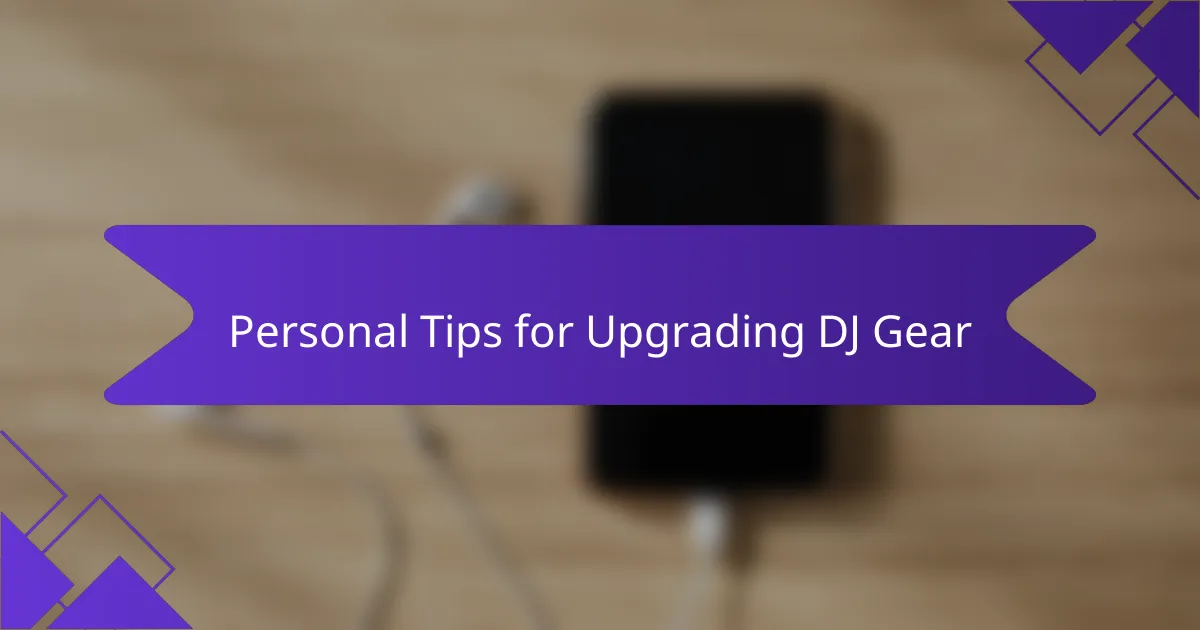
Personal Tips for Upgrading DJ Gear
When upgrading my DJ gear, I’ve discovered that patience is key. I recall a time when I rushed into buying new speakers, only to realize they weren’t the right fit for my style. I now take my time to research and reflect. I often ask myself, “How does this piece of gear align with my vision?” It’s a simple question, but it helps me avoid impulse purchases that I might regret later.
I’ve learned to prioritize gear that truly enhances my creative process. For example, investing in a high-quality audio interface gave me more flexibility with my music production, ultimately sharpening my overall sound. It’s amazing how the right tools can bring out new layers in my mixes. I sometimes wonder how many potential mixed moments go unnoticed because DJs don’t consider the impact of their gear.
Lastly, I can’t stress enough the importance of networking with other DJs. I still remember chatting with a fellow DJ who recommended a controller I hadn’t considered. Listening to their insights and experiences helped me see things from a different perspective. Engaging with others in the community not only broadens your knowledge but can also lead you to gear you may never have thought about otherwise.

